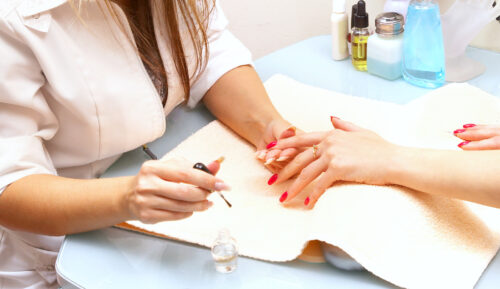
On a daily basis, for long hours, nail and hair salon professionals, many of whom are Vietnamese immigrants and women of color, handle disinfectants, solvents, glues, polishes, dyes, and straighteners, and other beauty care products containing a multitude of chemicals known or suspected to cause cancer, allergies, respiratory, neurological and reproductive harm. These workers report acute health concerns such as headaches, dizziness, rashes and breathing difficulties. Most nail and hair salon workers are women of reproductive age. SDSs are currently rarely available to consumers, advocates, or government agencies. A salon professional that is currently classified as an independent contractor (for example, she rents a booth in a salon) does not have the right to demand SDSs from the owner of the salon. County
and city coordinators of local Healthy Nail Salon Recognition Programs (HNSRPs) report it is difficult for them and nail salon owners to obtain SDSs from beauty supply stores or even directly from the manufacturer. Among other criteria, HNSRPs prohibit salons from using
products with toluene, formaldehyde, and dibutyl phthalate, and require all nail salons to have SDSs readily available to their employees.
Salon professionals represent a significant community of workers in California. In 2018, there were approximately 139,000 licensed manicurists, and 51,000 licensed businesses that provide nail hair, barber and other services. There were 314,500 licensed cosmetologists which are licensed to provide nail and hair services. The money spent in nail salons increased from $7.47 billion in 2012 to $8.53 billion in 2017. In 2017, the value of the U.S. market for the beauty and personal care product industry reached around $86 billion. Many of those products are used in nail and hair salons.
AB 647 IS THE SOLUTION.
Make SDSs easier to access by requiring them to be posted on a website; bridge the language gap by requiring them to be translated into certain specified languages, in order to:
- Enable salon workers and owners to better understand and take precautions to avoid the health hazards of salon products, like cancer and reproductive harm.
- Enable independent contractors and others working in beauty services, members of the public, and interested government agencies to obtain Safety Data Sheets and access the information they contain.